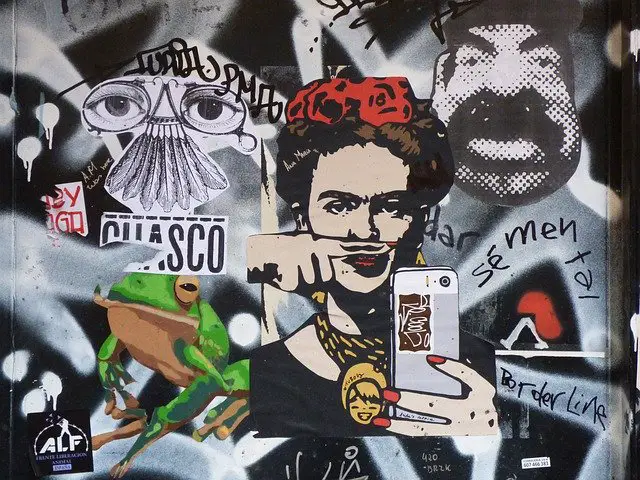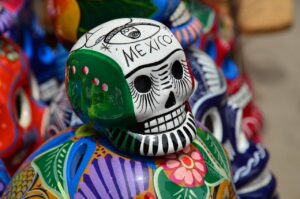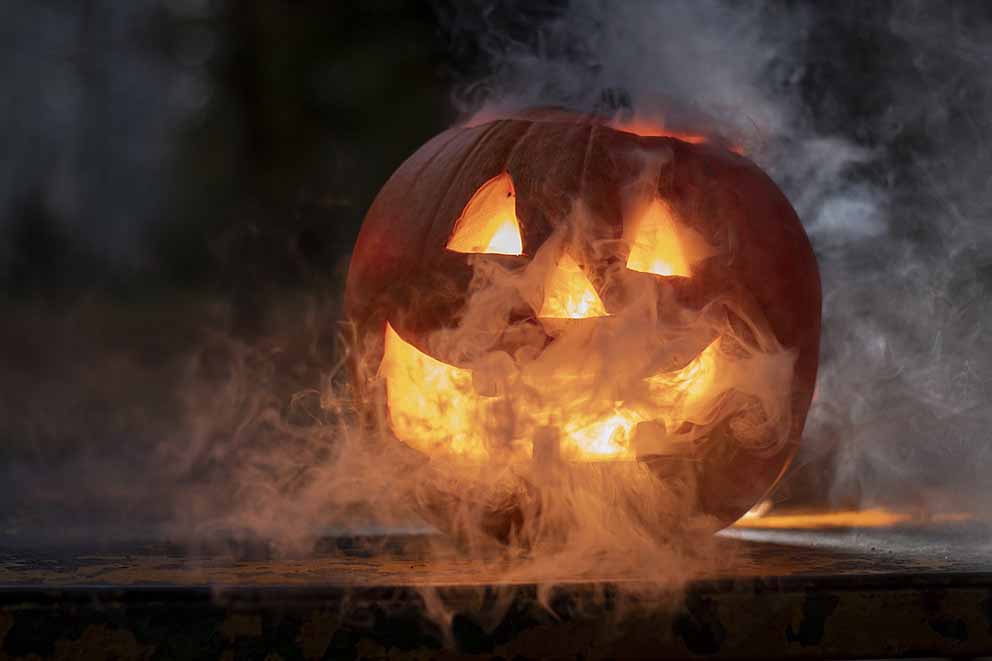Have you ever wanted to sound as though you were a native Spanish speaker? Perhaps the best way to do that is by using our Spanish slang words!
Spanish is well known for being perhaps one of the most useful and easiest languages to learn. It is also known for having several variants. The main variants are European Spanish, Mexican Spanish and Argentine Spanish. But of course all countries in Central and South America have Spanish as their main language, apart from Brasil where Portuguese is the main language.
Table of Contents
Spanish Slang Words and Phrases from Spain
European Spanish is generally considered to be one of the most useful languages to learn. European Spanish is the primary variant of Spanish spoken in Spain, as well as the Spanish enclaves of Melilla and Cueta. And it has some colorful slang words and phrases to offer.
Guay – “Cool”
In Spain, guay is used to express excitement about how great or how cool something is.
Guay can be used to describe both an object or a person. If you have a new IPhone or a new car, people may describe that as guay. People might refer to those people who they deem “cool” as guay too!
Being referred to as guay is generally considered to be a great compliment- you want to be called guay in Spain!
Cabrearse – “P*ssed Off”
Cabrearse literally means “to get angry” however, this is often in a very angry and irritated way. More often than not, it is used in the sense of it being noticeable.
Cabrearse is used in the same way that being red-faced and having smoke coming out of your ears is in those old-fashioned cartoons. As such, cabrearse is often translated at being severely annoyed or more commonly p*ssed off.
This is perhaps another one you need to be wary of- many people in Spain see it as vulgar, so repeated use in public may not be the most ideal thing!
Los Viejos – “Parents”
Los viejos is perhaps one of the most commonly used Spanish slang words. Los viejos translates literally as “the old ones” or “the elderly” and is used similarly to padres.
It’s not advised that you refer to your parents as los viejos in front of them. However, it is widely used in a friendly setting, between friends mostly, to refer to their parents.
Los viejos is very similar to how some people refer to their father as their “old man”.
¡Hostia! – “Bloody Hell”
Hostia is another one of the most common slang words in Spain. Hostia is the equivalent of “Bloody hell” in British English or “What the heck/hell!” in American English.
Depending on the context, it can also be translated as sh*t or damn. Hostia can also be used to say ¡Dar una hostia! which roughly translates as “Smack him/her” or “Give them a smack”.
However, you need to beware, as hostia can also be used as a non-curse word. Hostia can be translated as “host”, as in someone who’s home you’re staying in, so beware!
Joder – “F*ck”
Perhaps something you should only use with close family and friends is joder. Joder literally means “to f*ck” and is often used to illustrate that fact to someone and is one of the most common Spanish swear words.
Joder is used in many contexts, from cursing someone to talking about sex- much the same way that it’s English equivalent is!
Alternatively, joder is also used to show an intense annoyance at someone or something. Interestingly, joder can be used as both a verb and a noun (most commonly jodiste).
Es la caña – “Awesome”
Es la caña literally translates to as “it is the cane”. Es la caña is one of the most common Spanish slang phrases used in Spain.
However, it is often used to say that something is cool or awesome. Calling someone la caña is generally considered to be a great compliment from whoever gave it to you.
If you are trying to impress someone, especially someone you believe to be cool or awesome, calling them la caña will probably go a long way!
Qué chulo – “Cool”
Qué chulo is used very similarly to es la caña. However, where es la caña is used for people, qué chulo is used to describe objects.
Qué chulo is used to say that something is cool or groovy. Whilst it is most often used by teenagers and people in their twenties and thirties, it isn’t uncommon to hear people who are older using it too!
Use this one with caution, if you use qué chulo to describe a person, you may not be received too well. To describe a person, chulo can mean cocky or overtly arrogant.
Mono – “cute”
Mono is the Spanish slang word for “cute” or “beautiful” it is often used in the same setting as the Italian tu sei bella. Mono is used to tell a person that you find them cute or attractive.
Mono is actually used in both European Spain and Cuban Spanish. Traditionally, mono has been used solely for women, however, it has also been used to describe men too!
However, you have to be careful – mono can also mean monkey. So it is probably best to make sure that the person you’re calling mono knows you’re calling them cute rather than a monkey!
Mucha Mierda – “best of luck”, “break a leg”

Literally mucha mierda means “a lot of crap.” There are several theories about the origin of this Spanish slang phrase.
The one that seems most likely dates back to the 17th and 18th centuries, when wealthy people went to the theater in horse-drawn carriages. The more horses there were, the greater the number of enthusiastic spectators. Which also meant more money as the audience threw coins on the stage when they appreciated the performance.
But it also meant the horses had to wait longer in front of the theater. Which inevitably led to more horse apples – or crap – on the street. So, the greater the number of horse apples on the street, the greater was the revenue.
Mexico
Mexican Spanish is the dialect of Spanish most prevalent in well… Mexico! Mexican Spanish is also present in the US as well as Canada (in Latino communities).
Aguas – “Watch Out!”
Water! Could you imagine being warned to stay alert by someone shouting “Water!” at you? Whilst it might make sense at a beach or at a pool in English, however, it’s used everywhere in Mexican Spanish.
Aguas literally translates as water however, when used with exclamation, can mean “Watch out!” or “Caution!”. In Mexico, aguas is often used in place of ayudar.
When I went to Mexico last year, the sign in the mall said aguas, referring to needing caution and that the floor was wet too!
Platicar – “To chat”
Platicar is used in a similar way that charlar is. Platicar literally translates as “to chat” or “to talk”.
Platicar is perhaps one of the most common Mexican slang words among the younger Mexican generations. In fact, in many parts of Mexico, people almost exclusively platicar, rather than charlar or hablar.
Platicar is used almost entirely in relation to family and friends. You might use platicar in relation to talking to your brother, but you might use charlar in relation to talking to your boss.
No Mames – “No Way!”
No mames is the Mexican slang phrase meaning “No way”. Usually, if someone says that to you, they are either quite surprised or don’t believe what you have just told them.
For argument’s sake, if you told them you’d just bought the latest video game and were #1 in the queue, they might respond with “¡No mames!“
Sometimes, the word wey is also thrown on the end (to make “¡No mames wey!“) This simply means “dude” or “bro”.
Culero – “A**hole”
Culero is perhaps one of those things you shouldn’t say with your parents near you. Culero is the Mexican Spanish slang word meaning “A**hole”. And it is used everywhere!
Your spouse is annoying you, she’s a culero. Your boss is giving you an extra workload, he’s a culero. Your neighbors are playing rock music at 3 am, they are probably culeros.
Culero is generally seen in the same way as you calling someone an “idiot” in English. Even despite culeros’ worse meaning!
Fresa – “Snobby”
Fresa literally translates to as strawberry. However, in Mexico it can be used to call someone a snob or describe how they are snobby.
In Mexico, being called una fresa is considered to be a grave insult to someone.
There are also Spanish slang words for snobby in other Spanish dialects too. The Spanish use pijo, the Venzualans use sifrino and the Argentines use cheto.
So, from Mexico let’s move down further South on the map and have a look at slang expressions there.

Argentina
Argentine Spanish is spoken mainly in Argentina, but also in Uruguay and parts of Chile. Argentine Spanish slang words have borrowed heavily from Italian slang phrases.
¡Che boludo! – “Hey buddy!”
Alternatively, it can be translated as “You idiot!” It often depends on the context.
Boludo is the Spanish word for “big balls”. Historically speaking, Boludos were the soldiers who were the first to be sent into enemy cannon fire. Hence, the Boludos were often the first to die.
And this has become a part of Argentine culture. It makes sense that a Boludo would be considered an idiot or a fool.
Estar al horno – “In trouble”
Have you ever had that feeling that you’ve done something and you’re going to be in great trouble. The Argentines would say that you were estar al horno, sometimes with an added con papas.
Estar al horno literally means “in the oven” and con papas literally means “with chips”. It is often used in the context of having done something incredibly stupid and now you’re in big trouble.
Con papas is often added to show the intensity of your trouble. Estar al horno is bad, but estar al horno con papas is really bad.
Fiaca – “Too lazy”
Fiaca is perhaps one of those Spanish slang words you need to be careful of. Fiaca is used to show that you can’t be bothered to do something or that you’re too lazy to do something.
Fiaca is generally considered an acceptable excuse for not going to the cinema with some friends. And your girlfriend might accept it as an excuse for not going shopping with her (if you are lucky!).
However, using it as your excuse for not going into work generally isn’t…

Piola – “Cool”
With many Spanish slang words, you’ll often only hear young people saying them, however, piola is used by everyone, including the elderly! Piola doesn’t really have a literal meaning.
However, piola is the Spanish equivalent of “Cool” or “Great”. Piola is often used to describe an item rather than a person. Your car might be piola, however, you probably won’t be called piola.
It’s also probable that you might hear “Está todo piola” meaning “Everything is okay” or “Everything is great”.
We hope you enjoyed our little compilation of slang words and phrases from Spanish speaking countries. And a happy mucha mierda to you!





